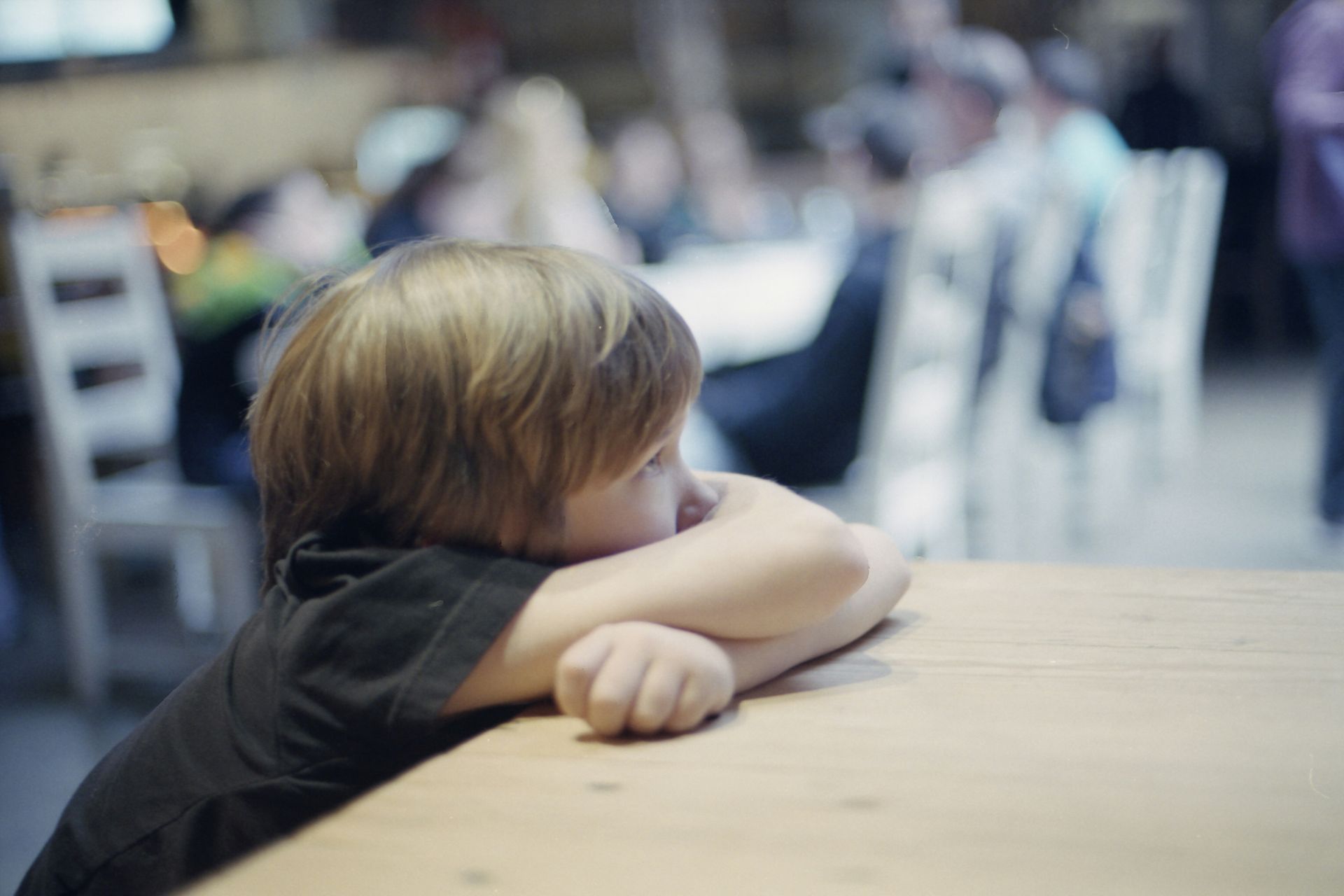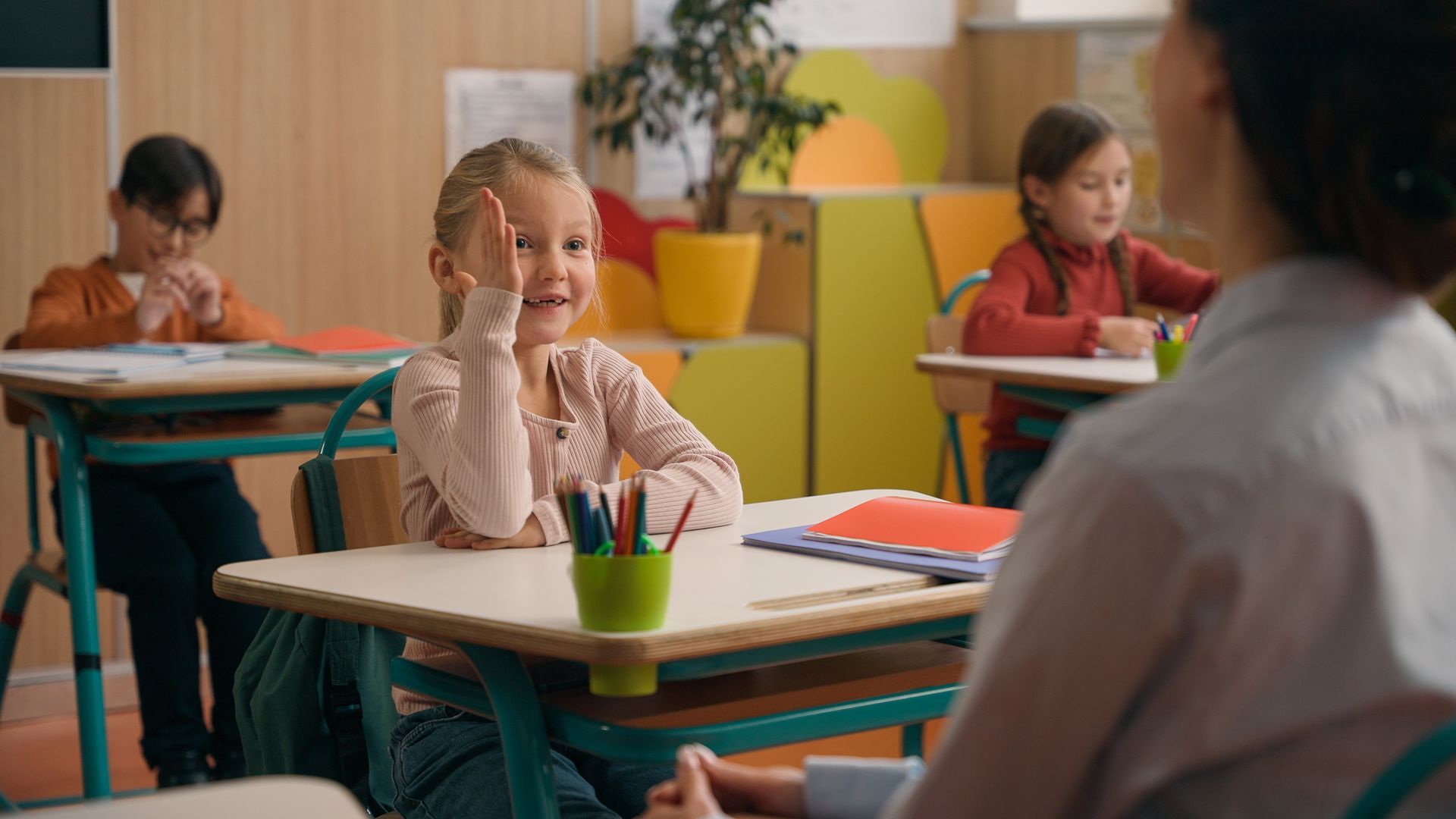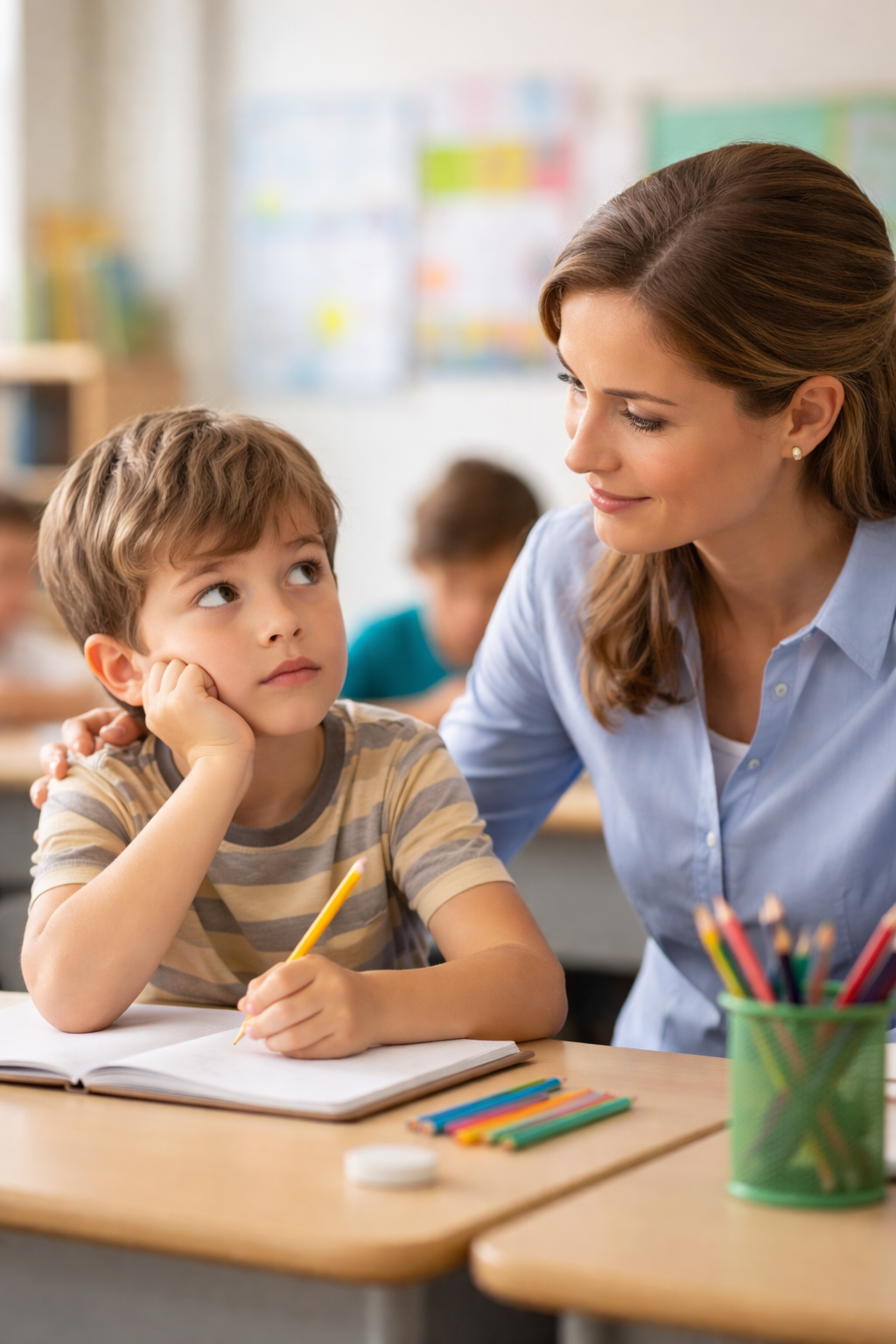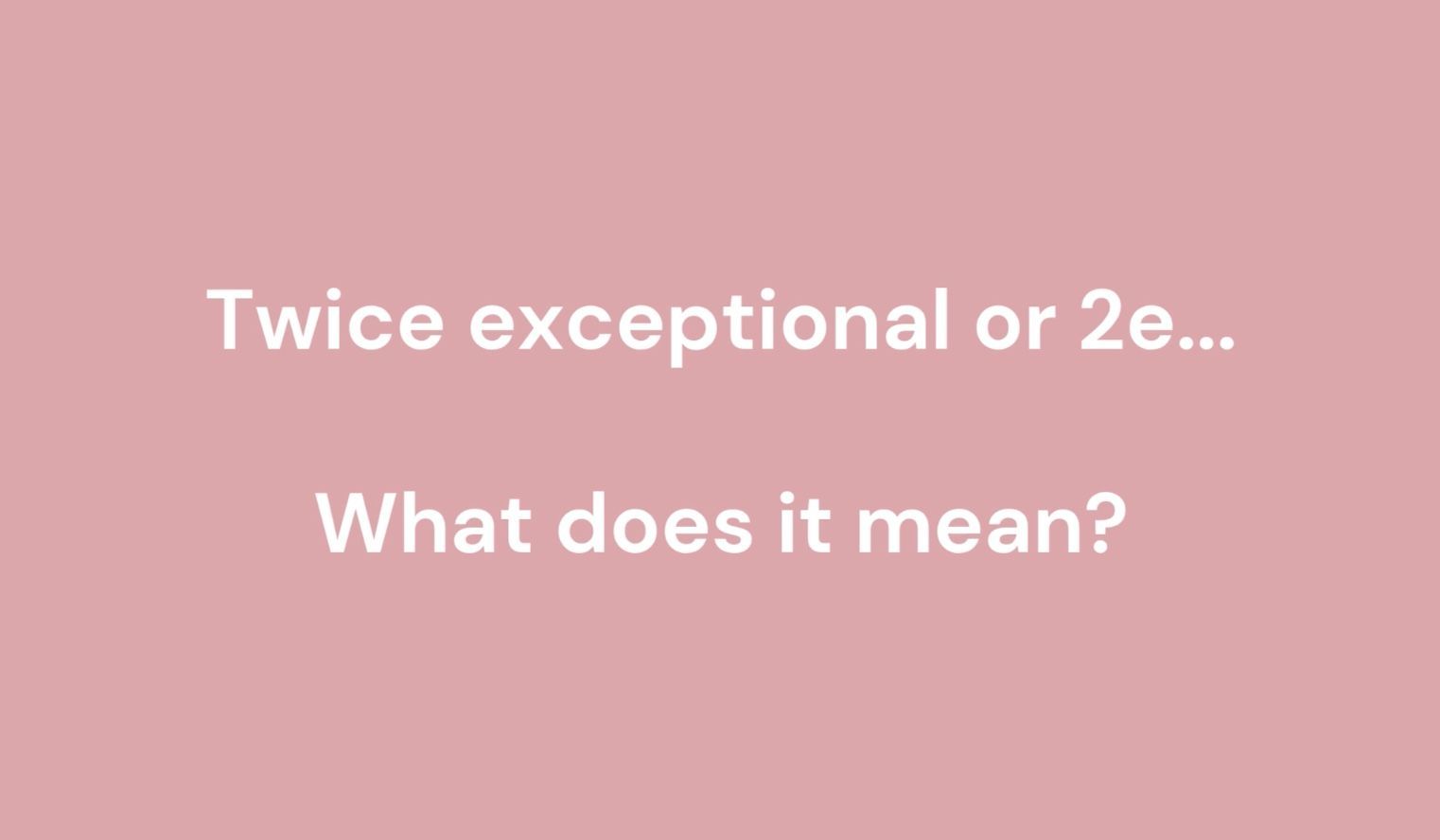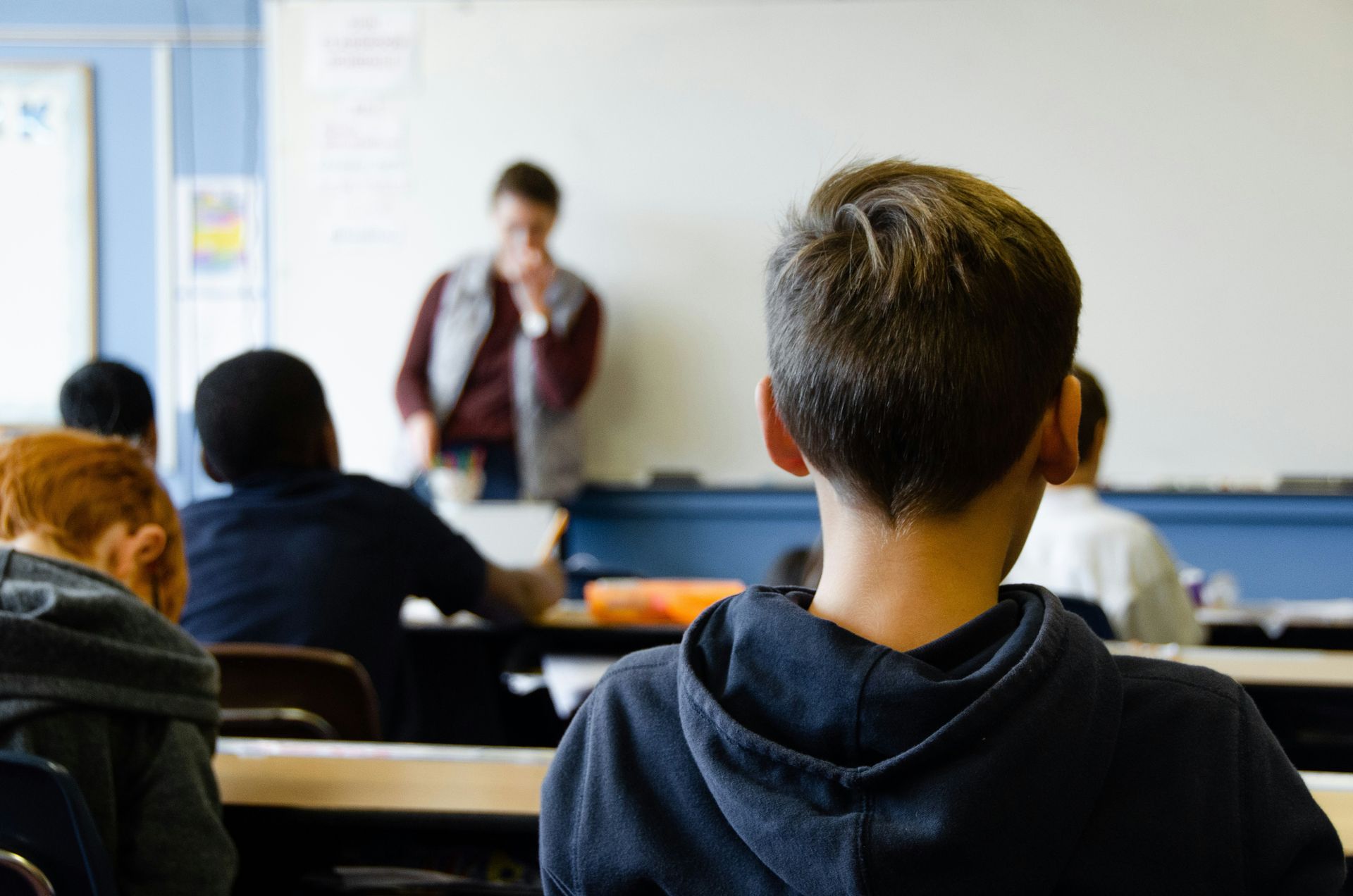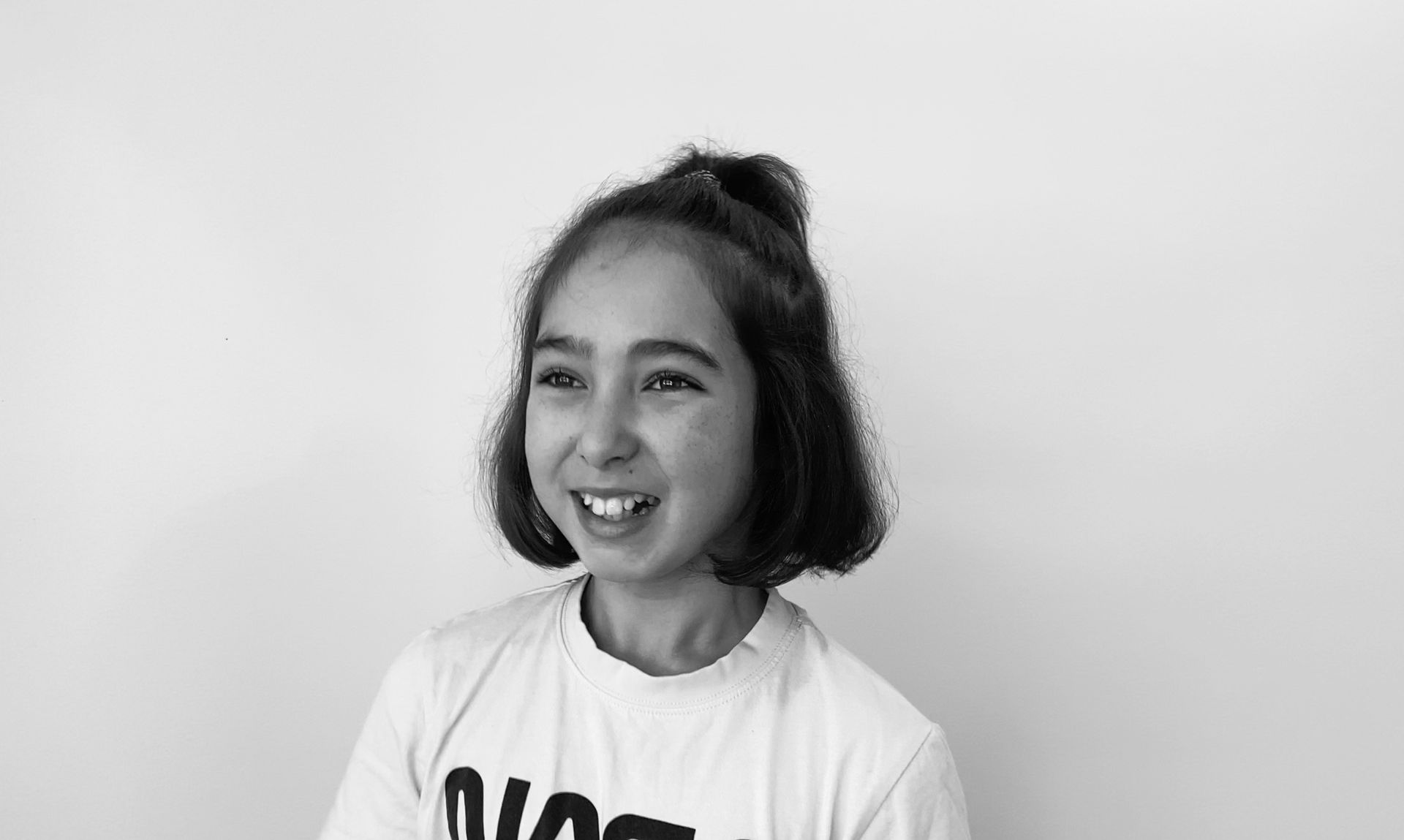Guiding the Rocket Ship: Why Gifted Learners Should Not Have to Learn Alone
Abstract
While gifted learners are often driven by their interests and can appear to be highly independent, this does not mean that they ought to be left to pursue their learning independently. The importance of significant persons and intrapersonal traits and attributes as catalysts of talent development in Gagné’s Differentiated Model of Giftedness and Talent show gifted learners must be thoughtfully guided by teachers who have been trained in the field of gifted education.
Keywords:
Gifted students; Gagné’s Differentiated Model of Giftedness and Talent; DMGT; classroom teacher; teacher attitudes; perfectionism; goal-valuation; motivation; talent development
Introduction
I remember the moment clearly. I had rushed through the set exercises in my grammar textbook, fumbling my work on clauses and punctuation, keen to have it done so I could move on to more interesting things. I finished the chapter and looked around. The rest of my class were taking their time. The person next to me was only halfway through the task. I pulled out my second exercise book, the one that contained my novel manuscript, and picked up the pen. Then the teacher called my name and asked me what I was doing.
“Oh, I’ve finished the work, Sir,” I said, in that presumptuous, assuring tone of voice which talented students learn early. Don’t worry about me. Worry about the other kids who are falling behind.
“I can see that,” he said. “But who said that means you get to decide what you go onto next?”
I was a rocket ship, but there needed to be a bit more work done on the ship and the navigation system before it went hurtling off into the far reaches of the universe.
In the Kierkegaardian sense that life makes sense when looking backwards but must be lived looking forwards, this was my first encounter with the myth that is the subject of this paper. The myth is that gifted learners can, or should, be left to learn alone. Such a statement assumes that learning is binary dichotomy – either someone learned, or they did not, and there is no interim degree – and it also groups gifted learners into a single homogenous group. It assumes that all gifted learners have this capability to work independently and self-regulate effectively, and that it is an appropriate intervention to allow every gifted learner to proceed through typical classwork at a rapid speed and then be master of their own (cognitive) domain.
This leads me to my present mission: to evaluate the myth that gifted learners can and should learn alone or by themselves. In order to do that I will refer to Gagné’s Differentiated Model of Giftedness and Talent (hence DMGT), focusing on the influence of environmental and intrapersonal factors on the development of talent, and the known problem of underachievement among gifted learners. I’ll recommend some strategies for working effectively to support rocket ships (read: gifted learners) based around improving environmental factors, building intrapersonal skills and attributes, and reversing or reducing underachievement.
The Myth and Gagné’s Differentiated Model of Giftedness and Talent
Overview
Gagné’s Differentiated Model of Giftedness and Talent provides a diagrammatic overview of the procedure of talent development – that is, the process of translating gifts as natural abilities in physical and mental domains (Gagné, 2009, p. 64) through catalysts into competencies or talents (ibid). Gagné divides the catalysts into environmental factors (milieu, individuals and provisions), and intrapersonal factors (physical and mental traits, and awareness, motivation and volition as aspects of goal-motivation). In this section, I’ll focus on the environmental factors of individuals (namely the classroom teacher) and provisions (the educational opportunities afforded to the student, especially ones offered as unique differentiated adjustments) in debunking the idea that gifted learners should learn by themselves.
Classroom Teacher as Environmental Factor
A range of research established the profound influence of a classroom teacher on their students, including their gifted learners (Baudson & Preckel, 2016). Research into so-called ‘self-fulfilling prophecies’ has shown the significant impact which teachers’ expectations will have on outcomes for their students (Jussim & Harber, 2005), and Lassig summarises Clark’s finding that the classroom teacher “significantly affects the development of gifted students” (Lassig, 2009, p.40). If the gifted learner was able to learn by themselves, then the classroom teacher would have to have little to no measurable influence on a student’s acquisition of learning. Instead, the opposite is true. The influence of a teacher’s attitudes and beliefs on their practice (Lassig, 2009; Jung, 2014) heavily impacts student achievement.
Provisions (or lack thereof) as Environmental Factor
The typical classroom is not perfectly effective as a space of adjustment (that is, provision) for the needs of gifted learners, including their need to be intellectually stimulated (Siegle & McCoach, 2018, p. 565). Subotnik, Olszewski-Kubulius & Worrell note that “opportunities provided by society are crucial at every point in the talent development process” and also note “the need for all students to be challenged in their schoolwork…. Appropriate educational programming, training and support are required” (Subotnik, Olszewski-Kubilius & Worrell, 2011, p.3-4). The fact that there is a clear need for external opportunities, appropriate programming, training and support further discredits the notion that gifted learners can be left to their own self-determined devices.
Evaluation
Overall, important persons and provisions are both catalysts which play a significant role in translating gifts into talents in Gagne’s DMGT (Gagné, 2009). A teacher’s attitudes and beliefs will greatly impact their students, and a lack of appropriate provisions or adjustments will prevent a gifted learner from being given appropriately challenging work, or appropriate support. As such, the myth that gifted learners can or should learn by themselves is disproven.
The Myth and the Fact of Underachievement
Overview
McCoach and Siegle have defined underachievement as “the discrepancy between expected achievement based on one’s intellectual potential/ability and observed academic performance” (McCoach & Siegle, 2014; Steenbergen-Hu et al, 2020). Underachievement is rampant among the gifted population, particularly among male students (Hatley and Townend, 2020). As such, it will be demonstrated that students’ attitudes (including their conceptions of intelligence) and both their goal-valuation and motivation significantly influence their learning. In this context, while some gifted learners may be capable of extended independent work, the heterogeneity of learners’ motivation, self-regulation skills, and adaptive/maladaptive perfectionism means not all students can do this.
Fixed Mindsets and Perfectionism
Perfectionism is not unique to gifted learners, and both gifted and non-gifted learners can exhibit adaptive or maladaptive perfectionism; it is still true that “many gifted students do display concerning qualities of unhealthy perfectionism” (Mofield et al, 2019, p. 1). Maladaptive perfectionism can lead to behaviours such as delaying classwork, compulsive action, a fear of failure, and task/challenge-avoidance (ibid). Researchers have drawn a division between Evaluative Concerns, or maladaptive attributes, and Positive Strivings (Speirs Neumeister, 2016). In this framework, the former includes factors such as Concern Over Mistakes, Parent Criticism, and Parental Expectations (Mofield et al, 2019). If learners have a fixed conception of intelligence then they may feel that their sense of self or their identity as ‘bright’ or possibly ‘gifted’ learners is at risk when a difficult task is presented to them, and they may then avoid the task completely in order to avoid the failure in the one task compromising their whole identify and self-efficacy (Mofield et al, 2019). As summarised by Siegle and McCoach, “for [these learners], not performing is less risky than performing and failing” (Siegle & McCoach, 2018, p.566).
As such, if a gifted learner is motivated by Positive Strivings, then there may be a degree to which they can learn by themselves, insofar as they possess the initiative and determination to commence and continue learning activities alone. However, students who exhibit maladaptive perfectionism need appropriate intervention and coaching from teachers and mentors in order to develop the intrapersonal traits required to come autonomous learners.
Goal-Valuation and Motivation
Mofield and Peters have argued that “all three attitude components (self-efficacy, goal-valuation, and environmental supports) must be present to catalyse the motivation and self-regulation necessary to produce ultimate achievement” (Mofield & Peters, 2019). On a similar note, in a study by McCoach and Siegle cited by McCoach and Flake, the best predictors of student achievement were found to be motivation or self-regulation as well as goal valuation, and a clear correlation was found between a student’s goal-valuation and their ability to motivate or regulate themselves to achieve said goals (McCoach & Flake, 2018, p. 209; McCoach & Siegle, 2003). Because gifted learners often have particular interests (as do all learners), it cannot be assumed that they will see the arbitrary value of mandated classwork; further, if they have been in regular classrooms for some time, they may be conditioned to see classwork that has been set for all students as boring and irrelevant to their unique interests. McCoach and Flake use Csikszentmihalyi’s flow theory to argue that educators of the gifted must set learning tasks which are complex enough to prevent boredom and not so difficult to induce anxiety; further they advise that educators must help gifted learners to value their learning goals more highly (McCoach & Flake, 2018, p. 203-204; Csikszentmihalyi, 1975; Csikszentmihalyi, 1990).
As such, because goal-valuation and motivation play a large role in successful learning, the myth that gifted learners can learn by themselves assumes that these learners always value their learning goals highly and are always motivated to achieve them. In fact, “regular classes, as compared with gifted education and advanced classes, tend to undermine, rather than support, a passion for learning” (Siegle and McCoach, 2018, p. 565; Fredricks, Alfeld, and Eccles, 2010). As such, not only can gifted learners not learn by themselves if they lack goal-valuation or motivation, but the general educational system has actively reduced these important factors in talent development.
The Influence of the Myth on Practice and Policy and Recommendations
The myth of the totally independent gifted learner has impacted teaching practice and policy in two key ways. Firstly, it has meant that the education of the gifted is not a requirement for preservice teaching programs or an explicit part of the AITSL Teaching Standards. Secondly, it has meant that vital intrapersonal traits are not always coached or explicitly developed in students. I will give an overview of each implication and then advise recommendations.
1. Teacher Training, and the Lack Thereof
A cursory search of the Australian Professional Standards for Teachers for the terms ‘gifted’ and ‘talented’ produces no results (Australian Institute for Teaching and School Leadership, 2011). While differentiation for “the specific learning needs of students across the full range of abilities” is specified (ibid), the fact that giftedness and talent are not explicitly present in the standards must mean that many working teachers are not aware of the potential need to seek professional development in this area. Additionally, I did not complete any training in the area of Gifted and Talent in my preservice instruction and I do not believe it is a required component in a teaching qualification in Australia. This pattern is contradicted by the Department of Education’s High Potential and Gifted Policy, which refers explicitly to ‘gifted students’ and specifies that schools must offer interventions such as grouping strategies, advanced learning pathways, acceleration and enrichment programs (NSW Government, 2022). Jung has found that most practitioners have “generally neutral attitudes towards special education interventions for gifted students by teachers” (Jung, 2014, p.237), and it is clear that the assumption that gifted learners will learn by themselves has prevented practitioners from seeking appropriate instruction and development. There seems to be a discrepancy between the requirements of schools and the proficiency of teachers, but schools are comprised of teachers, and this discrepancy must be reconciled.
Recommendations
a. Raise (or Change) the Standards
The Australian Professional Standards for Teachers must explicitly refer to the instruction of gifted and talented students (and skills in talent development) as part of Standard 1: Know students and how they learn (Australian Institute for Teaching and School Leadership), and education in this area must form a required component of preservice instruction programs. There needs to be a specific, particular requirement for teachers to learn how to effectively teach the gifted.
This ought to also impact ongoing professional development. The Department of Education’s High Potential and Gifted Education policy could be used as a reference point for development; for example, teachers should be cognisant of the need to learn about, practise and implement “tailored resourcing and support” (1.3.1), “significant adjustments and interventions for students in the highly gifted range” (1.3.3), and the construction of “learning environments that support high potential and gifted students to experience efficacy, agency and achieve their educational potential” (1.5.1) (NSW Government, 2022). Some of these things are assumed in the generalised language of the standards, but these generalisations are excluding the particular needs of high potential and gifted learners.
2. Non-Identification and Non-Development
The assumption that all gifted learners can always work independently and learn by themselves has two problematic corollaries:
- Students who lack the self-regulation, goal-valuation and motivation to work independently may not be identified as potentially gifted learners in the first instance, and
- Gifted learners who cannot work independently will never receive the support they require in order to catalyse their gifts and will not develop their talent.
If a teacher’s beliefs impact their practice as discussed earlier and a teacher holds the conception that all gifted learners can work independently, then a teacher may interpret any negative behaviour as evidence of a student’s lack of giftedness. A twice-exceptional student, student with a significant learning disability, or an impulsive student with generally low self-regulation may be judged as low-ability on the basis that they are not able to work by themselves. This is a result of the teacher’s faulty assumption and a false assessment of the natural aptitude or general ability (Gagné, 2009) of such students; I can imagine that many potentially gifted students have remained invisible and unidentified because of the stigma surrounding such behaviours.
I here offer a number of recommendations, particularly focused on helping students with goal-valuation, motivation and maladaptive perfectionism, but also focused on generally effective strategies for developing talent.
Recommendations
1. Consciously develop students’ intrapersonal skills and traits
- Coach a Fluid Conception of Intelligence
A fixed or ‘entity’ view of intelligence (Mofield et al, 2019) has been shown to lead to maladaptive perfectionism and avoidance of tasks for fear of failure. If students instead view intelligence as fluid and malleable, they are more likely to interpret difficult tasks as areas of potential growth, rather than a reason for avoidance (ibid). Teachers should model positive self-talk and cognitive reframing, reward effort rather than outcome, and seize upon opportunities to praise student mistakes which lead to growth. - Normalise Risk-Taking and Redefine ‘Perfect’
Following on from 1.1, students who fear failure are less likely to take risks, but risk-taking is a fundamental aspect of being creative: ergo, students who do not take risks are limited in their potential to learn (Mofield et al, 2019). Students should be encouraged to take risks. Teachers should work with maladaptive-perfectionist students (ones who exhibit Evaluative Concerns) to set realistic goals for their work, such as the use of mastery/learning goals rather than aiming for the complete absence of mistakes (ibid). - Mental Contrasting
Interventions which increase motivation and the value of learning have been shown to be the most effective interventions for underachievement in gifted learners (Siegle & McCoach, 2018). Mofield and Peters argue that mental contrasting can be an effective part of an intervention strategy for students who lack self-regulation in order to raise goal-valuation and motivation (Mofield & Peters, 2019). In this strategy, a student begins by outlining their goal and their reasons for wanting to achieve the outcome (that is, their motivation). By contrasting this ideal future against the fact of the present, learners can predict problems and solve them proactively, raising motivation and self-efficacy and increasing the likelihood of the goal being achieved.
2. Set Appropriately Challenging Work
When discussing effective teaching strategies for gifted learners, Little (2018) makes the following recommendations:
- Accelerate content
Gifted learners can often acquire knowledge more quickly and more easily than their peers (Little, 2018). The work should be adjusted for them by introducing complex material earlier or eliminating unnecessary instructional content. Gagné advises customised pacing as one of seven best practices for talent development (Gagné, 2015), although it is outside the scope of this paper to discuss the benefits of acceleration fully here. - Metacognition and independent study
With the vision of developing independence, gifted learners should engage in self-evaluation and metacognitive reflective tasks which can foster these independent learning skills. Gagné recommends “personal excellence goals” (Gagné, 2015, p. 289). Following on from the recommendations in (1), a classroom teacher could work with a student to develop these personal aspirations.
In general, differentiation of learning activities for gifted learners must be done proactively and intentionally, not in reaction to a student happening to complete a class task quickly.
Guiding the Rocket Ship: Conclusion
In conclusion, then, the myth is patently false. While some gifted learners may be able to learn independently, this does not mean they should learn in this way, disconnected from the classroom teacher and unwatched by any formative assessment. In fact, the significant role played by important persons as a crucial catalyst in the process of talent development means that for these learners, a close and trusting relationship with their classroom teacher is particularly significant and potentially transformative for their educational journey.
Some of our gifted learners have a second exceptionality, experience a lack of motivation, or need provisions and support to improve their goal-valuation so that they can achieve their learning goals. Other gifted learners are rocket ships: they will travel to corners of the universe (this one, and others) which we cannot see ourselves. But even rocket ships need NASA!
List of References
Australian Institute for Teaching and School Leadership (2011). Australian Professional Standards for Teachers, AITSL, Melbourne.
Baudson, T.G., & Preckel, F. (2016). Teachers’ Conceptions of Gifted and Average-Ability Students on Achievement-Relevant Dimensions. Gifted Child Quarterly, 60(3), 212-225. https://doi.org/10.1177/0016986216647115
Clark, B. (2002). Growing up gifted: Developing the potential of children at home and at school (6th ed.). Upper Saddle River, NJ: Merrill Prentice Hall.
Csikszentmihalyi, M. (1975). Beyond boredom and anxiety. San Francisco, CA: Jossey-Bass.
Csikszentmihalyi, M. (1990). Flow: The psychology of optimal experience. New York, NY: HarperCollins.
Department of Education (2021, February). High Potential and Gifted Education: Guidance on implementing effective learning and teaching practices to develop the talent of high potential and gifted students. High Potential and Gifted Education P12, NSW Government. https://education.nsw.gov.au/policy-library/policies/pd-2004-0051
Fredricks, J. A., Alfeld, C., & Eccles, J. (2010). Developing and fostering passion in academic and nonacademic domains. Gifted Child Quarterly, 54, 18–30. http://dx.doi.org/10.1177/0016986209352683
Gagné, F. (2009). Building Gifts into Talents. In B. Macfarlane and T. Stambaugh (Eds). Leading Change in Gifted Education: The Festschrift of Dr. Joyce Vantassel-Baska (pp. 61-80). Prufrock Press.
Gagné, F. (2015). Academic talent development programs: a best practices model. Asia Pacific Education Review, 16(2), 281-285.
Jung, J.Y. (2014). Predictors of Attitudes to Gifted Programs/Provisions: Evidence from Preservice Educators. Gifted Child Quarterly, 58(4). DOI: 10.1177/0016986214547636
Jussim, L., & Harber, K.D. (2005). Teacher expectations and self-fulfilling prophecies: Knowns and unknowns, resolved and unresolved controversies. Personality and Social Psychology Review, 9, 131-155. doi:10.1207/s15327957pspr0902_3
Hately, S. and Townend, G. (2020). A Qualitative Meta-Analysis of Research into the Underachievement of Gifted Boys. The Australasian Journal of Gifted Education, 29(1). DOI: http://dx.doi.org/10.21505/ajge.2020.0002
Lassig, C. (2009). Teachers’ attitudes towards the gifted: The importance of professional development and school culture. The Australasian Journal of Gifted Education, 18(2), 32-42. 10.21505/ajge.2015.0012
Little, C.A. (2018). Teaching Strategies to Support the Education of Gifted Learners. In S.I. Pfeiffer (Ed.), APA Handbook of Giftedness and Talent (pp.371-385). American Psychological Association. http://dx.doi.org/10.1037/0000038-024
McCoach, D.B. and Flake, J.K. (2018). The Role of Motivation. In S.I. Pfeiffer (Ed.), APA Handbook of Giftedness and Talent (pp. 201-213). American Psychological Association. http://dx.doi.org/10.1037/0000038-013
McCoach, D. B., & Siegle, D. (2003). Factors that differentiate underachieving gifted students from high achieving gifted students. Gifted Child Quarterly, 47, 144–154. http://dx.doi.org/10.1177/ 001698620304700205
McCoach, D. B., & Siegle, D. (2014). Underachievers. In J. Plucker & C. Callahan (Eds.), Critical issues and practices in gifted education: What the research says (2nd ed., pp. 691–706). Waco, TX: Prufrock Press.
Mofield, E. & Peters, M.P. (2019). Understanding Achievement: Mindset, Perfectionism, and Achievement Attitudes Among Gifted Students. Journal for the Education of the Gifted, 42(2), 107-134. https://doi.org/10.1177/0162353219836737
Mofield, E., Peters, M.P. and Chakraborti-Ghosh, S. (2019) Perfectionism, Coping, and Underachievement in Gifted Adolescents: Avoidance vs Approach Orientations. Education Sciences, 6(4) https://doi.org/10.3390/educsci6030021
Speirs Neumeister, K.L. (2016). Perfectionism in gifted students. In The Social and Emotional Development of Gifted Students: What Do We Know; Neihart, M., Pfeiffer, S., Cross, T., Eds.; Prufrock Press: Waco, TX, USA, 2016; pp. 29–40.
Siegle, D. and McCoach, D.B. (2018) Underachievement and the Gifted Child. In S.I. Pfeiffer (Ed.), APA Handbook of Giftedness and Talent (pp. 559-573). American Psychological Association. http://dx.doi.org/10.1037/0000038-036
Steenbergen-Hu, S., Olszewski-Kubilius, & P., Calvert, E. (2020). The Effectiveness of current Interventions to Reverse the Underachievement of Gifted Students: Findings of a Meta-Analysis and Systematic Review. Gifted Child Quarterly, 64(2), 132-165. DOI: https://doi.org/10.1177/0016986220908601
Subotnik, R.F., Olszewski-Kubilius, P., & Worrell, F.C. (2011). Rethinking Giftedness and Gifted Education: A Proposed Direction Forward Based on Psychological Science. Psychological Science in the Public Interest, 12(1), 3-54. https://doi.org/10.1177/1529100611418056
Author
Brendan Archbold
NB: Please note that this article only represents the views of the author(s), and is not necessarily representative of the views of the Australian Association for the Education of the Gifted and Talented.
Disclaimer: The views and opinions expressed in this blog are those of the author and do not necessarily reflect the official policy or position of the AAEGT.
Share this resource
Resources
